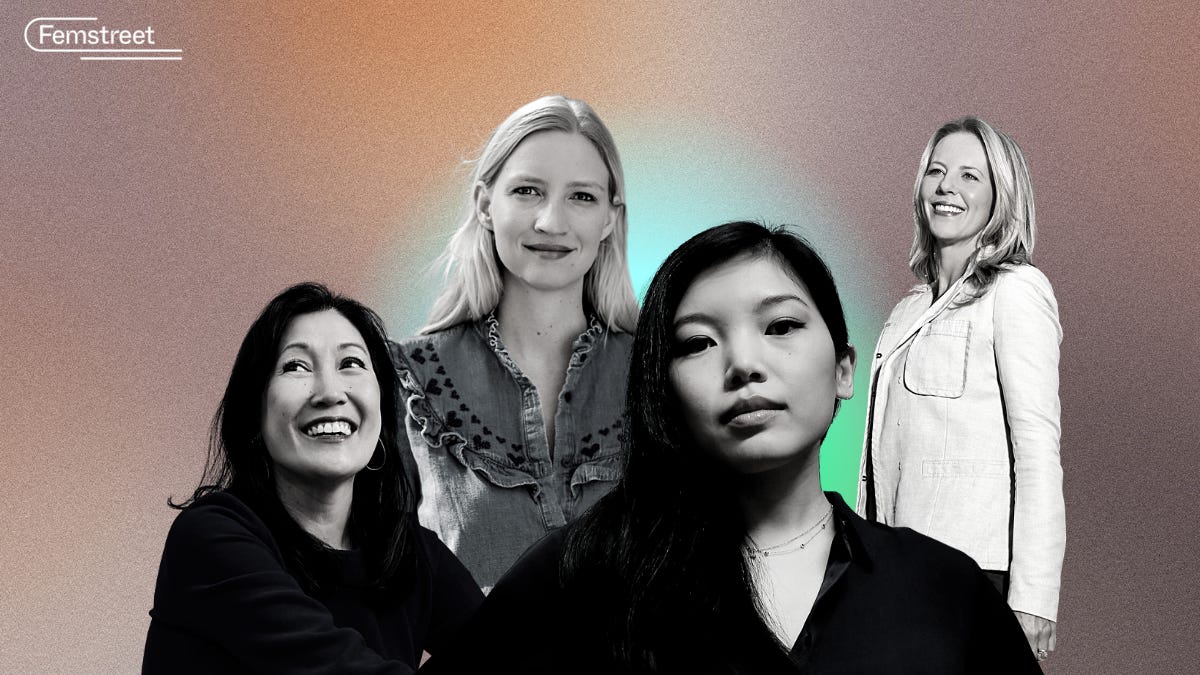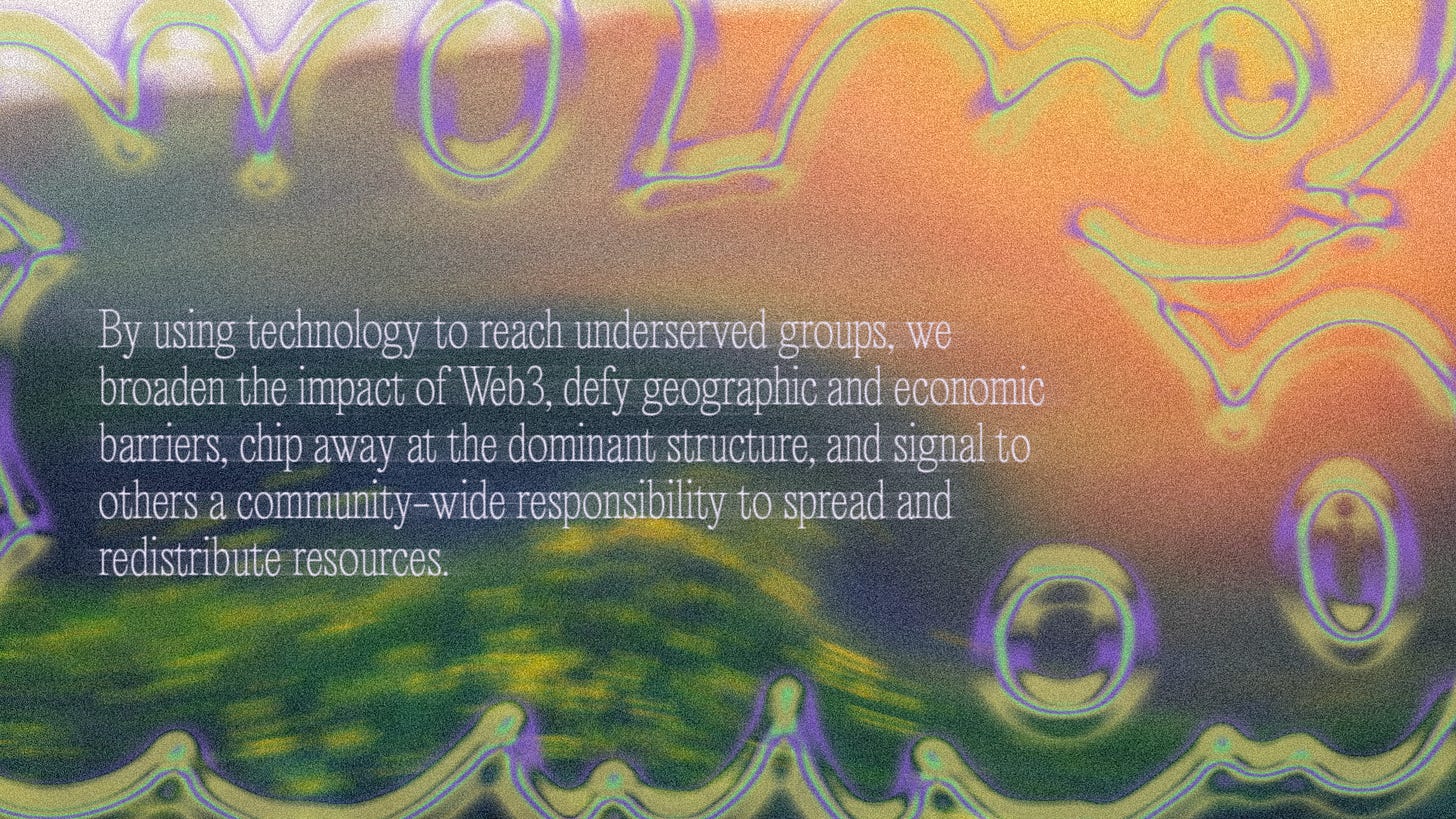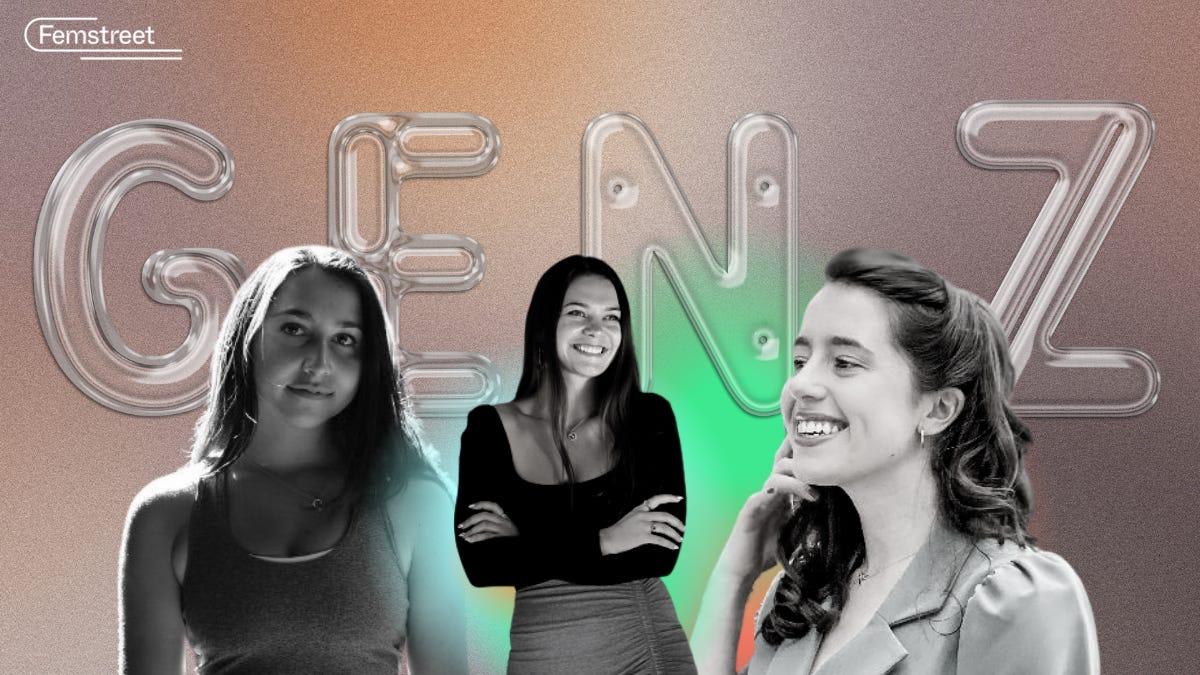As 2021 comes to an end, let’s take a moment to reflect on a year of women making headlines and our biggest stories of the year.
1. We celebrated a record breaking 10+ female-led IPOs.
The global IPO volumes rose 64% this year and it has been a historic year for female-led IPOs with almost $59B sold off through Q3 already. Whitney Wolfe Herd became the youngest woman to take a company public when Bumble had its initial public offering in February, raising $2.2B. Vimeo CEO Anjali Sud became the first South Asian woman to take a company public on NASDAQ mid May. Two weeks later, direct-to-consumer health care apparel maker FIGS became the first company founded by two women to go public. In November, the listing of ecommerce player Nykaa made founder Falguni Nayar to India’s richest self-made billionaire with a net worth of nearly $7B. This month, Brazilian digital bank Nubank, co-founded by Cristina Junqueira, had its debut on the NYSE, raising $2.6B at a $42B valuation. Yet, it’s still incredibly rare for women-led companies to IPO. We count 12 in 2021, including cannabis giant Leafly’s and genetic testing company 23andMe’s SPAC, NextDoor’s $4.4B SPAC merger and Jessica Alab’s The Honest Company, Rent The Runway’s $357M IPO, Doğan Holding’s $3.9B listing and Mytheresa’s IPO. Who did we miss? In early 2022, we can expect Away and Houzz to IPO. Bigger headline numbers will likely appear down the road but can we even expect a repeat?
2. More women have raised their own fund$, let’s celebrate those.
Overall, we've seen meaningful growth in the number of women in decision-making roles at VC firms. We have also seen more women build their own VC firms from the ground up and raise institutional capital in record times. The percentage of female GPs at firms with over $50M in AUM rose to 15.4%. Who’s gone solo this year or raised fresh capital? Former Accel VC Pia d’Iribarne launched New Wave, a $56M European seed fund in early 2021. In February, former NEA partner Dayna Grayson and ex-Uber exec Rachel Holt raised $140M to back industrial startups. Mary Meeker closed Bond Capital’s second fund of $2BN. In March, former Dropbox employee Lan Xuezhao closed $165M sophomore fund for Basis Set Ventures. In May, Janine Sickmeyer, launched Overlooked Ventures. In June, Erikan Obotetukudo made a name for herself as the first Black woman to run a crypto fund when she became a general partner at Audacity Fund. In July, Renegade Partners, co-founded by veteran VCs Renata Quintini and Roseanne Wincek, rolled out its debut fund with $100M. In September, Cisco-backed Acrew Capital raised $680M with a new late-stage investment fund dedicated to diverse groups. In October, Li Jin, who left a16z mid 2020 to launch her own creator economy-fucused fund Atelier Ventures, joined crypto fund Variant as General Partner. And in December, we learned that Katie Haun, former General Partner of a16z Crypto, is leaving to launch her own fund focused on web3 early next year. Who’s up next? Let us know.
3. Crypto went mainstream. Are we paving the way for a more inclusive tomorrow?
Venture capital invested a record $30B in crypto in 2021, more than every other year combined. But how much has gone to female founders and artists? As crypto expanded into mainstream industries in 2021, the community talks about web3’s opportunity to do things differently, to elevate underserved communities and provide avenues for wealth creation and distribution. People say that anonymity in crypto fixes diversity. Gating communities and content behind paywalls and out of reach token prices doesn’t help. DAOs reward the early adopters and “in-crowd” first by design. If our transaction history is going to replace resumes for web3 jobs, we will continue to reward the wealthy. The average crypto owner is a 38-year-old male making approximately $111K a year. In addition, 74% of crypto holders are men, and 71 percent are white. However, there are more women than men interested in getting into crypto soon: women make up 53% of the “crypto curious”. Here are a few of the many all-star women shaping the future of crypto today. But we need to get more women educated, increase access to capital and we need more women led projects and communities. You are a curious newbie? Check out Odyssey DAO, Rabbithole.gg, web3 baddies, Komorebi Collective, Audacity and Gaby Goldberg’s web3 reading list.
4. We have minted a record number of $1B+ women led companies this year.
As of August, at least 39 private companies with all women or both men and women on their founding teams have crossed the $1B valuation mark for the first time. Who are the new unicorns and decacorns of 2021? Maven Clinic raised $110M and became the first U.S. unicorn dedicated to women’s and family health. Blackstone bought a majority stake in Spanx, valuing it at $1.2B. Depop led by CEO Maria Raga joined the Etsy Family for $1.6B. And in B2B? Stytch, an API-first passwordless authentication startup co-founded by Julianna Lamb, secured a $90M Series B, pushing the company over the $1B valuation line. Spring Health raised a $190M Series C at a $2B valuation - this makes CEO April Koh the youngest woman to run a unicorn. Guild Education led by Rachel Romer Carlson is now valued at $3.75B. Deel, co-founded by Shuo Wang, raised over $600M this year and hit $5.5B valuation. And let’s not forget that Canva, co-founded by Melanie Perkins, raised $200M at a $40B (!!!!) valuation in September, making it the world's most valuable company founded and led by a woman. BAAM!
5. Gen Z VCs are rebuilding the Internet and shaking up the VC game.
Gen Z has become the target market for many new businesses—and founders and venture firms want to work with them. Gen Zers are leveraging personal brands to get into more deals and launch their own funds. I remember well when the 23 year old Maegan Loyst joined Lerer Hippeau and Twitter in September 2020. Two months later, Meagan started Gen Z VCs Slack channel, which grew from a small group of 30 friends to a global collective of 15,000+ young leaders all over the world throughout 2021. In September this year, Meagan hosted a virtual summit for Gen Z venture capitalists, featuring more than 3,000 attendees from over 70 countries. I connected with Gaby Goldberg in early 2020 when she was considering taking time off of school, but got rejected by a dozen consulting firms. Thanks to a good cold email, she then landed a gig at early stage web3 product fund Chapter One, joined Bessemer Ventures Partners and is now investing full-time at TCG crypto. Let’s not forget her 50k Twitter followers. And in May this year, 22-year-old Paige Finn Doherty raised $1.6M to invest in underrepresented entrepreneurs with Behind Genius Ventures. Doherty also published a 40-page educational picture book for adults about venture capital investing.
6. Female founders smashed funding records, but what’s really behind the numbers?
Female-founded companies raised $40.4B through the first three quarters of 2021, almost doubled 2019’s total of $23.7B. Despite the record numbers, there is actually a widening gap between the overall startup market and female-founded companies. Female-founded companies took in 8.1% fewer dollars, while the broader market saw 28.2% more. For the first time in over a decade, early stage valuations of female-founded companies (a 7.2% bump) diverged significantly from the overall market (a 12.7% bump versus 2020). What about growth stage financing? The median for the VC market overall is $120M, 71.4% higher than the full-year 2020 markup. For female-founded companies, the median is $100M YTD, a 69.4% increase from 2020. We still got a long way to go.
We asked our community about pivotal lessons this past year and what 2022 has in store.
The world evolves faster than people’s beliefs. There’s a generation of people whose success is tied to a world that no longer exists, which makes it really hard for them to accept new ideas. The bottom line is: expertise has a shelf life, which is why change will come from the outside in.
- Sari Azout, Founder of Startupy & Check Your Pulse
I am continually reminded of the importance of investing in *people*. Whether for a first time founder at the pre-seed stage or a growth-stage unicorn, this business is fundamentally about investing in strong, resilient founders: founders need to be able to outlast their idea and even their market.
- Deena Shakir, Partner at Lux Capital
Focus is the most important skill anyone can have. Today, there are a million shiny new ideas pulling you in a million different directions—saying yes is easy, but saying no is usually more strategic. I wish I’d been more focused from the start, and I remind myself all the time now that my hours are best spent doing what I’m best at. How much more could I have accomplished if I’d just accepted that I’m not great at making Notion templates and moved on?
- Kinsey Grant, Host of Thinking is Cool
Every single member of your team has valuable insights that can truly move the dial for your workflow, culture and company trajectory—and often they come from people for whom they're completely outside of their job description. The best idea should always win, no matter where or who it comes from. If your most junior artist knows how to fix a customer service problem, listen. If you’re making a marketing video, ask one of your engineers for their opinion. Mix it up and get everyone involved, because not only can your team see things that you as a leader may never be able to see, but they can end up sitting on winning, company-changing ideas if they’re too shy, scared or feel out of place to suggest them.
- Melissa Cash, Co-founder & CEO of Pok Pok
The future of VC is creator-led, and therefore having a voice and presence has never been more important - especially for younger VCs just getting started. It helps you get in front of founders proactively, keeps you top of mind for your peers as they think about syndicating rounds / bringing in other funds, and will help your career immensely in the long run.
- Meagan Loyst, Investor at Lerer Hippeau and founder of Gen Z VCs
… and what we can expect in 2022:
More elegant UX and consumer experiences will come to crypto. The spread of ideas depends on their ability to be understood. Use cases for NFTs beyond collectible jpegs and token gated Discords. The world will be a much more interesting place when it becomes tokens + the products we use every day.
- Sari Azout, Founder of Startupy & Check Your Pulse
Having had the chance to work from home for the last 10 years, I believe in the power of a fully distributed company, and the advantages it brings to both parties: employees and the company itself. It offers a flexible schedule to the employees, no need to relocate in order to get your dream job, and encourages specific categories that normally would not take a 9-5 job (for example new mothers) to be part of the workforce. I hope that this trend will continue after the pandemic and companies will embrace either a hybrid work environment or a fully distributed approach.
- Monica Sarbu, Founder & CEO of Xata
Despite the day-to-day volatility in public markets, I hope and expect to see more innovation and investment from early-stage investors in healthtech in 2022. In particular, I hope to see more focus on under-served sectors (e.g., women's health) and markets (e.g., Medicaid) — which, despite underinvestment, make up a significant portion of the population and health care costs and are responsible for driving individual and population health outcomes. I also hope and expect to see a shift toward more community-oriented solutions that effectively engage patients (i.e. consumers) while interfacing and integrating with providers and payers.
- Deena Shakir, Partner at Lux Capital
I'm excited to see how startups and massive brands alike use their platforms to bring the everyday consumer into Web3 and the ownership economy -- we still have a long way to go here. Specifically, how companies utilize NFTs to activate their communities and think about a new era of customer loyalty, drop culture, and beyond.
- Meagan Loyst, Investor at Lerer Hippeau and founder of Gen Z VCs
I’m betting big on creator-led niche communities. Over the last couple of years, we’ve seen a boon in creators of all kinds (which is incredible), but now I think we’re reaching a point at which the creator classes/groupings will get even more discrete. I’m anticipating more hyper-focused communities (DAOs, perhaps?) for all manner of people, professions, interests, etc. with super smart creators at the helm. I think we’re ready to go beyond “I read Morning Brew” or “I listen to Ezra Klein” to content-anchored communities as specific as, say, “I’m a minority 20-something tech founder who’s trying to raise her first venture round” or “I’m a law student eager to brush up on judicial history in a way that doesn’t make my eyes roll into the back of my head.” There’s so much value to be unlocked in specificity. Quality > quantity. And people > products.
- Kinsey Grant, Host of Thinking is Cool
See you all next year with a bang!
👋 Sarah
Written by Sarah Nöckel, Early-Stage investor at Northzone. Born in Germany. Based in London. You can find me elsewhere on Twitter and Instagram.










